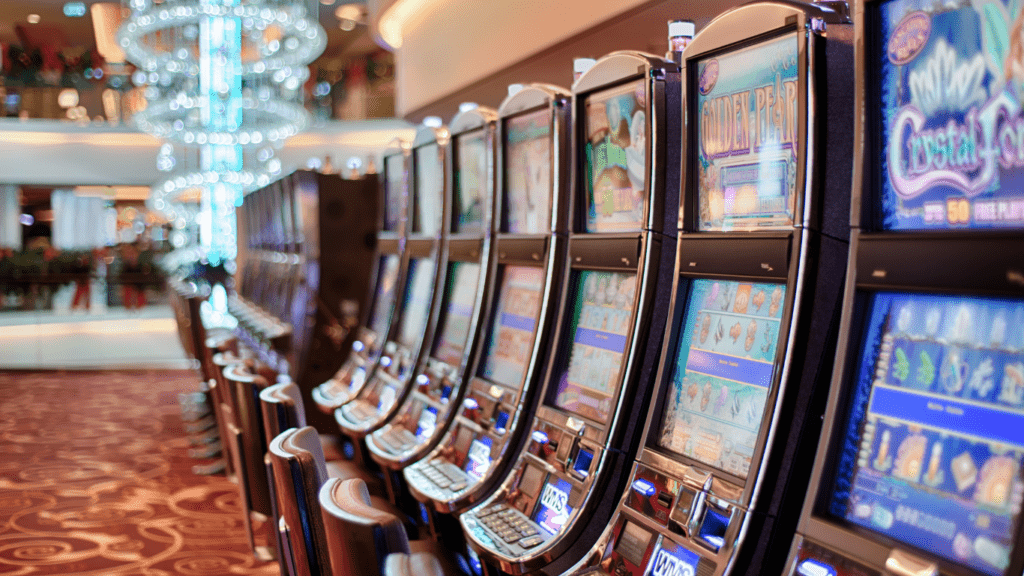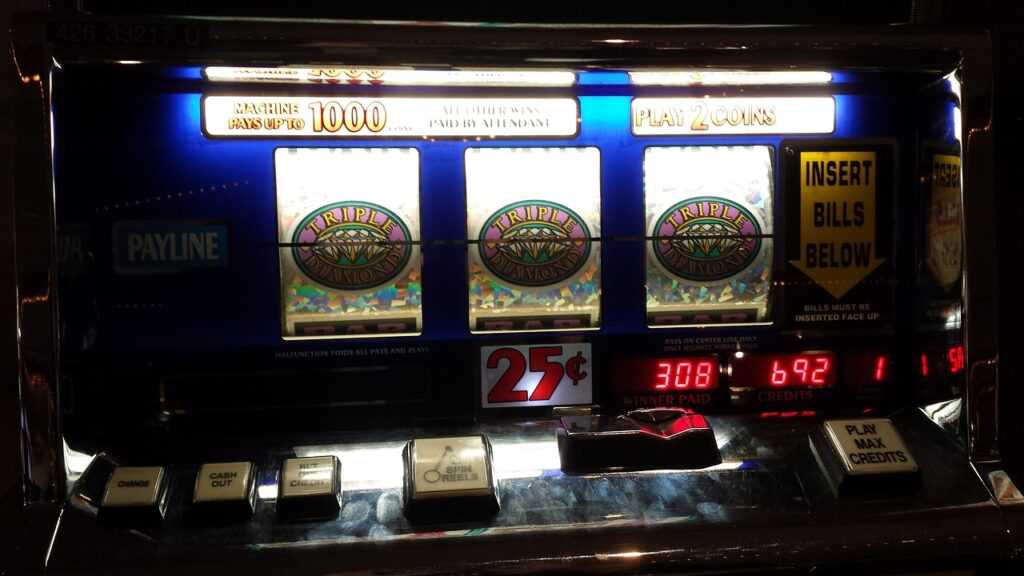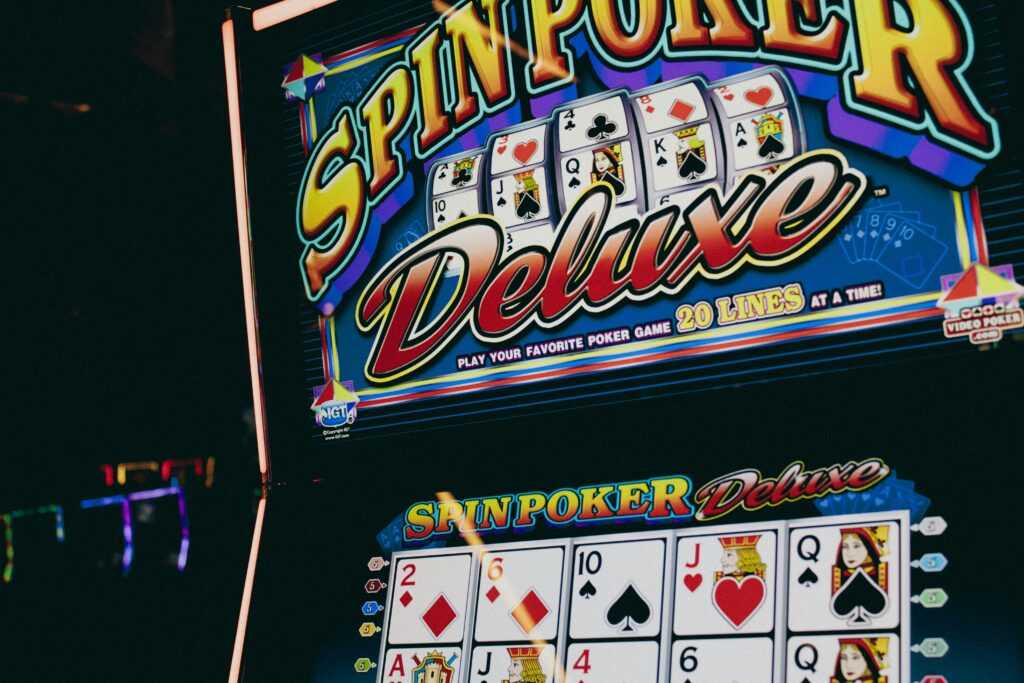Understanding Slot Machines
Slot machines, a staple in casinos, feature spinning reels with symbols that align to create winning combinations. Modern slots have evolved from mechanical devices to complex electronic systems. These machines offer countless themes ranging from classic fruits to blockbuster movies. Each machine’s paytable outlines potential payouts, including jackpot prizes, based on specific symbol alignments.
Slot machines use a Random Number Generator (RNG) to ensure random outcomes. Each spin’s result is determined at the moment the player presses the “spin” button. The RNG guarantees that every outcome is independent, preventing patterns or predictive possibilities. Machines differ in volatility levels, with some offering frequent small wins while others payout larger sums less often.
Player engagement is enhanced through stimulating audiovisual effects. Visuals include flashing lights and graphics, while audio features dynamic sounds that add excitement with each spin. Bonus features like free spins and multipliers captivate players’ attention. These elements combine to create immersive experiences, often sustaining player interest for longer periods.
Cognitive Biases in Gambling
Slot machines engage players by leveraging several cognitive biases. Understanding these can help players recognize how their perceptions and decisions might be influenced.
The Role of Randomness and Illusion of Control
- Randomness plays a crucial role in the slot machine experience.
- Each spin is determined by a Random Number Generator, ensuring outcomes are unpredictable.
- Despite this, many gamblers feel they can influence results through actions like pulling the lever a certain way or choosing specific machines.
- This illusion of control gives players a false sense of confidence, encouraging prolonged engagement.
- Studies suggest that emphasizing player choice can enhance this effect, making players believe they’re impacting the outcome.
The Impact of Near Misses and Losses
Slot machines often present near misses, appearing just one symbol away from a win. This phenomenon exploits the gambler’s fallacy, where players believe a win is imminent after several losses or near hits. Near misses drive motivation and excitement, prompting players to continue spinning with the expectation of an upcoming win. Casinos use this psychological tactic, combined with loss aversion, to keep players invested even when they’re losing, creating an ongoing cycle of hope and reward.
Emotional Factors Influencing Choices
Slot machines engage players through a range of emotional triggers. By understanding these emotional factors, I can appreciate the methods used to captivate and retain attention.
The Appeal of Themes and Imagery

Themes and imagery play a significant role in slot machine appeal. From classic motifs like fruit and jewels to modern themes such as:
- adventure
- fantasy
these designs cater to diverse preferences. Many players, including myself, find comfort or excitement in themes that resonate personally, making themed slots more engaging. The colorful visuals and creative imagery evoke emotions, enhancing the overall experience and influencing my choice. Graphics that align with my interests or cultural touchstones add another layer of connection.
Impact of Sound and Visual Effects
Sound and visual effects are crucial in shaping how I perceive slot machines. The strategic use of upbeat, celebratory sounds creates an illusion of frequent wins, even when only small payouts occur. This auditory stimulation can enhance excitement and prolong engagement. Visual effects, such as flashing lights and animations, maintain attention and signal potential rewards. By combining these elements effectively, slots can create an immersive and captivating environment that draws me in and keeps me engaged.
Social and Environmental Influences
Slot machine choices often reflect social and environmental factors. These elements shape player experiences and can significantly impact selection decisions.
Casino Layout and Atmosphere
Casino design plays a key role in guiding player behavior. I observe how slot machines are strategically placed near entrances or popular attractions to maximize visibility. Bright lights and vibrant displays draw attention, enhancing the allure of specific machines. The overall ambiance, including music and decor, creates a stimulating environment that encourages prolonged play. A well-arranged layout can make certain areas more appealing, influencing my choice and enhancing engagement.
The Effect of Peer Influence
Peer behavior often affects individual choices in casinos. I notice that social settings encourage imitation, leading players to choose machines with high traffic or recent payouts. Engaging in discussions with friends or observing others’ excitement can sway my decisions. Group dynamics introduce a sense of community, where positive interactions and shared experiences enhance enjoyment. This social influence often drives me to try popular or recommended machines, reinforcing collective behavioral trends within the casino environment.
Strategies for Responsible Gambling
Understanding and applying strategies for responsible gambling can help maintain a healthy relationship with slot machines. My focus includes recognizing patterns and setting practical limits.
Recognizing Patterns of Behavior
Identifying personal gambling habits can assist in promoting responsibility. I pay attention to how often I visit the casino or play online and observe any changes in my behavior during winning or losing streaks. If I notice increased playtime or emotions significantly affecting decisions, it’s crucial to reassess my approach. Recognizing triggers, such as stress or excitement that lead to impulse gambling, helps me adopt mindful practices, ensuring I’m making choices based on enjoyment and not compulsion.
Setting Limits and Budgeting
Establishing clear boundaries enhances control over gambling activities. I always set a budget before starting to play, specifying the maximum amount of money and time I’ll allocate to gambling. Once these limits are reached, I immediately stop participating, regardless of the outcomes. Using tools like timers or setting predefined session durations prevents excessive time spent gambling. This disciplined approach not only protects financial well-being but also ensures that gambling remains a pleasurable activity rather than a source of stress or anxiety.








